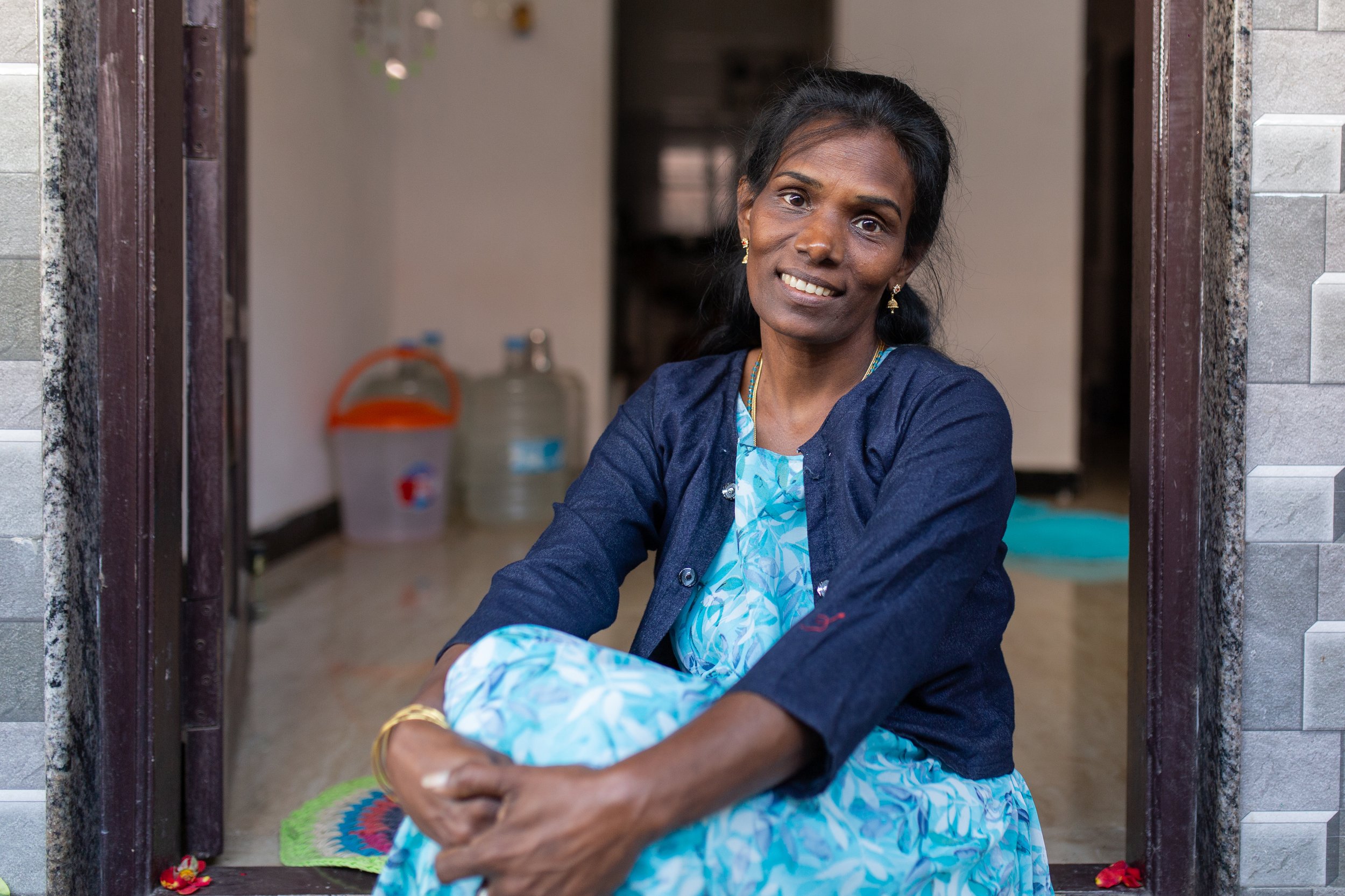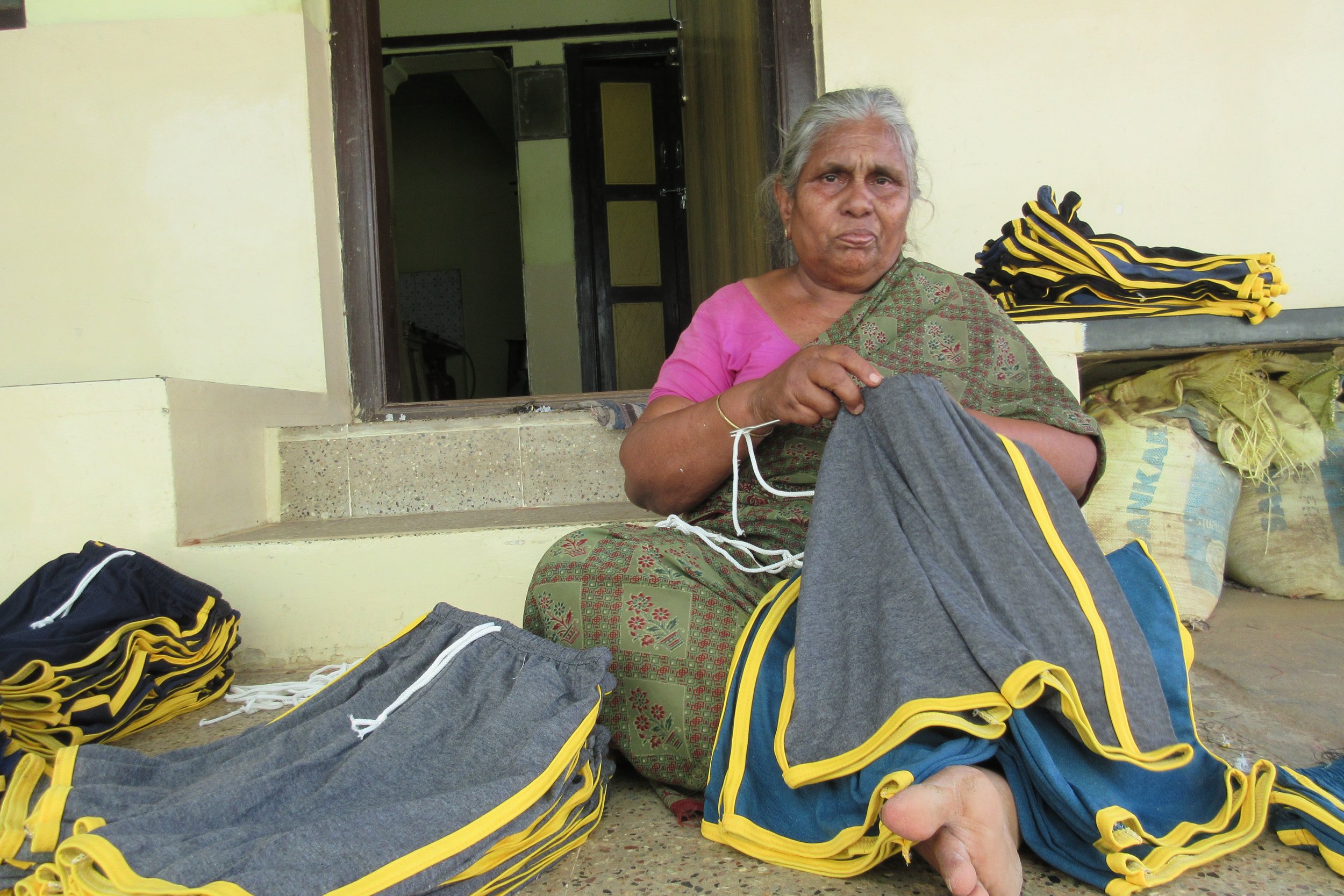
E. Kamalam
Scroll down to view her photography
“I really liked taking photos – I took a lot at my sister’s wedding on a different camera. I can see the improvement in my pictures and how they have changed from when I first took photos. At the wedding house everyone asked how I learned all these skills, and I told them where. The photos came out really well, and everyone really appreciated them – I took most of the pictures for the wedding. Before the training, I’d have sent over so many pictures, but now I know to sit and how to asses which ones are good to send. I will keep taking pictures after the project is over, using the cameras. The only problem is, now we know how to take photos, if I take pictures at functions and weddings, people want them in albums, so I can’t yet do this for money, I’d like to learn about editing and printing, so I could use the photography as an income generation. The training didn’t cover this, but I’m hoping now to use the cameras to take pictures at birthday parties and events”.
E Kamalam

"Her name is Byros, she’s a friend, and she’s folding cloth to make shorts for kids. I positioned her in a good light, so the photo would be stronger. The shorts she’s making are for the local market. She has a husband and a kid, and her elderly parents live next door. She takes care of them too, so working as a homebased worker is good. Since she has a small kid, she can’t go outside and work. Compared to other tasks this work fetches 3 rupees per pieces, where as other work gets only 50 pestas, so she chooses to do more of this – you cam choose what job you take when they come to your street with the materials. She chooses this work to earn more. It’s black cloth, which has more dust than other colours. If the dust is extreme, you can ask for a mask, but it would better if we were given masks for all the work. Export companies in factories make sure that people wear masks, but in homebased work that’s not the case. If you wanted to wear a mask, you’d have to buy your own."

“Everyone works outside their homes to protect the home from the dust and fibres, and to save money on light and energy. During the rains, we can’t work, but the rain is scattered and doesn’t come often. Her name is Kaniyammaa. She has children but they don’t take care of her, so she and her husband work. The children have moved out, but she doesn’t complain about them – she just gets on with doing this work to earn. In India, if your children don’t take care of you, that’s no good. You put everything into your children. I asked her what happens when she gets too old to work, and she said ‘let me do until I can no longer work – after that, it’s up to the Gods.’ This lady is part of my collective, who are fighting for the recognition of homeworkers – this would mean she was able to have a pension. She said to me ‘If we don’t win this fight for a pension, you are a woman too – you can take care of me!’ Factory workers would get a lump sum of money when they retire, or they can access that money as a pension.”

"In this photo, I wanted to show the second step of the work my neighbour was doing – the threading of the strings. She’s using a large needle, which sometimes the contractors provide, and other times you have to buy. The next stage in the process is shaking the items to free them from dust and dirt and loose threads. This kind of work is really common across the whole of Tirupur, they do it everywhere. All the shorts are for the Indian market. I thought a lot about the light before taking this picture, and I wanted to capture the moment where the needle was inserted – I had to take a few pictures from different angles to get this shot. The repeated actions become painful – a lot of the work homeworkers do is painful, but this one causes more pain. They do pay a little more for this, and it’s a widely available job. For 1 rope, you get just one rupee. The lady in this photo is old, it will hurt her – but it’s the most available job. After corona, we can’t be choosy about what kind of work we want to do - it’s hard to get work, so we take what we can.”

"This elderly granny, Annalakshmi, goes about packing finished products.She gets paid 30 Paisa for packing each finished garment. Even though garment industry is exploitative and under pay all of us, it provides so many different kinds of job opportunities."

"These are the boxes used to pack finished products, we generally do not see finished products and boxing. We just do our job and pass the garment to the next stage. Because of photography, I came to these packing units and saw how it is done."

"I liked the colors and shape of these finished product bundles, these will be then packed, labelled and boxed. "

"These are photos from one of the many waste segregating workshops in Tirupur. It is one of the most difficult jobs, you need to segregate the cloths based on color, group them and then pack it. Not a single piece of cloth is wasted, it is used in another form."

"This 80 year old lady sits next to the temple near my house and uses cut pieces from clothes to make waste threads which is used in cleaning purpose. She gets 30rs per kg of waste that she makes and earns about 90rs per day. It is difficult for aged ones in this industry, no one wants to hire you but you have to earn yourself to make a living as there is no pension or any other welfare schemes to support us."

"While walking around with the camera near my house, this flower seller called me over and asked me to take her photos. I liked the colours and the way she was making the garland."

"My son planted this mango sapling 20 years back. I took care of it like mown child, even my son used to come from school and water the plants everyday. Now it is bearing fruits and has been useful to so many people. I have now changed my house but I feel very happy whenever I pass through by this tree."
